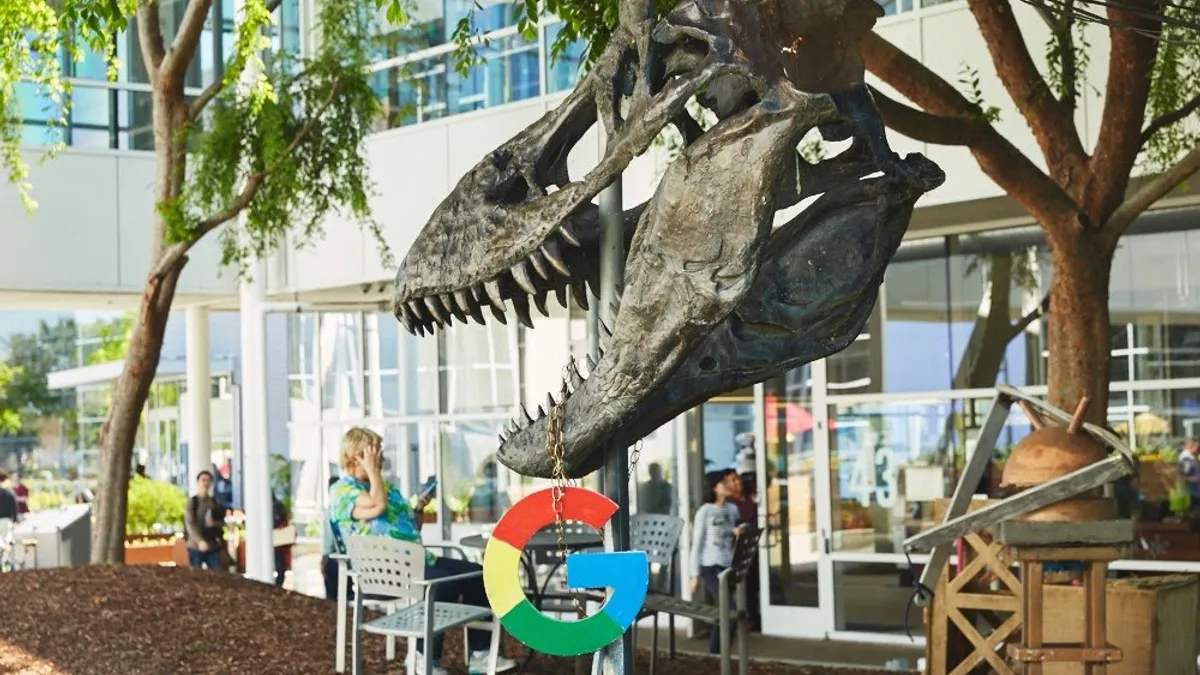Dive Brief:
- Google is struggling to reduce emissions as AI efforts drive up compute intensity and technical infrastructure investments, the company said in its annual environmental report last week.
- The tech company’s greenhouse gas emissions increased by 13% last year compared to the year prior — up 48% since 2019, according to the report. Google is working to reduce its combined Scope 1, 2 and 3 absolute greenhouse gas emissions by 50% in the next six years.
- “Predicting the future environmental impact of AI is complex and evolving, and our historical trends likely don’t fully capture AI’s future trajectory,” Google said in the report. “While we remain optimistic about AI’s potential to drive positive change, we’re also clear-eyed about its potential environmental impact.”
Dive Insight:
While Google’s AI efforts make the company’s sustainability goals harder to reach, the company says the technology could help long-term.
To support sustainability progress, the tech company is using AI to better analyze large quantities of data, improve predictions and optimize operations. Google has also developed more energy-efficient chips and practices that reduce emissions produced during model training.
But curbing AI’s environmental impact will require “system-level changes,” such as grid decarbonization, evolving regulations and the availability of carbon-free energy, Google said in the report.
The report also marked a shift in the tech company’s approach to the carbon market. From 2007-2022, Google used carbon credits to offset any emissions it could not avoid through its energy efficiency or renewable power purchasing efforts, per the report.
However, Google said it will no longer utilize this approach to reach carbon neutrality. Instead, the company pivoted to making investments to accelerate the development of carbon removal solutions in 2023 to help reach its net-zero goals.
CIOs contending with cloud costs and tech stack investments could ultimately face sustainability challenges as they ramp up generative AI projects. Enterprises are also hopeful the technology can be used to mitigate environmental harm.
L’Oreal is planning to use AI to help researchers identify new solutions and kickstart creativity to advance on its sustainability goals, according to CEO Nicolas Hieronimus, speaking during the beauty company’s Q4 2023 earnings call in February.
“We are transforming L’Oreal,” Hieronimus said. “Not just making it future-proof, but inventing the future of beauty, a future where beauty will be more personalized, more inclusive and more sustainable, thanks to technology.”
The rise in environmental, sustainability and governance-related regulations has underlined the need for sound reporting practices — a popular use case targeted by AI vendors.
Nearly all – 98% — of the S&P 500 companies had released sustainability reports by 2022 according to the Center for Audit Quality. But it’s not an easy process. Enterprises often cite data troubles and a lack of digital transformation as hurdles.












